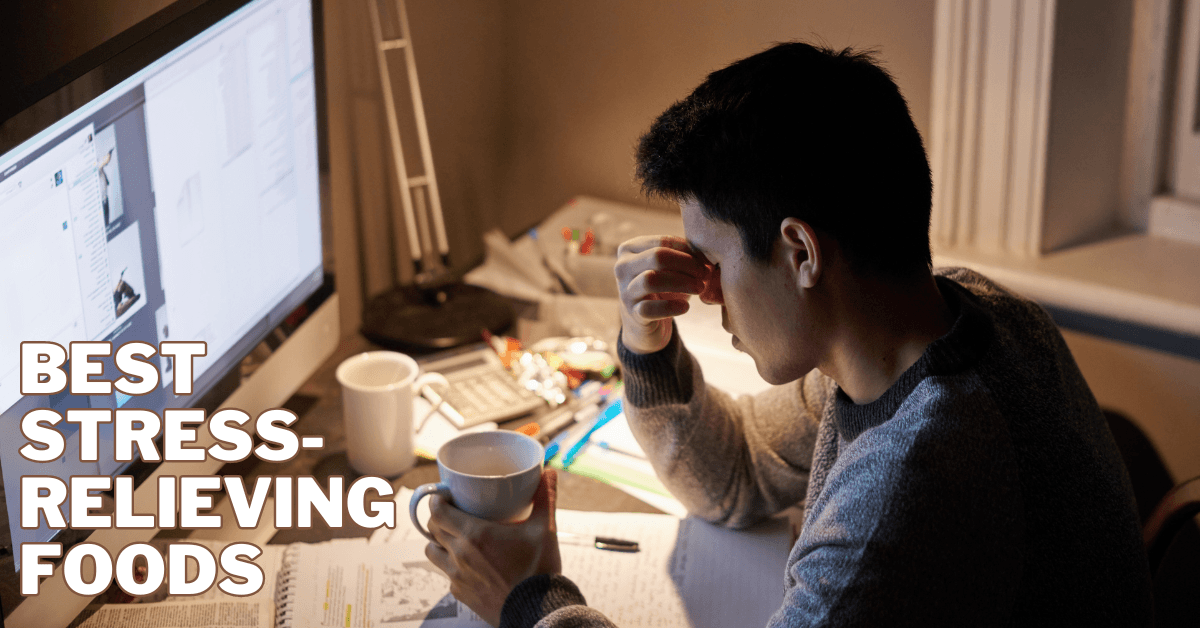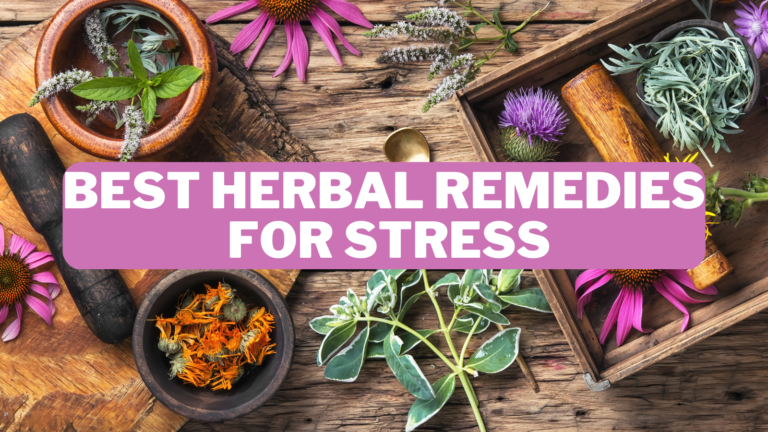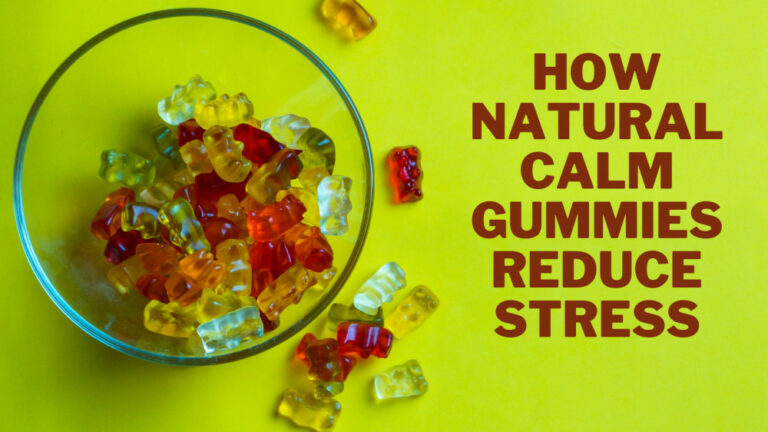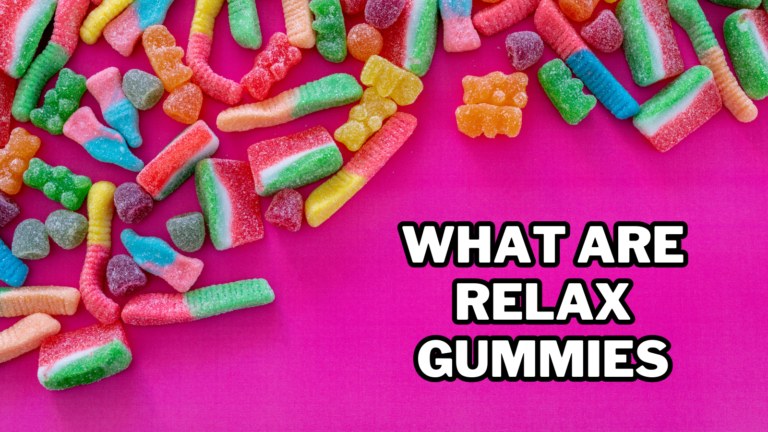Best Stress-Relieving Foods
Best Stress-Relieving Foods
Stress has become a constant and unwelcome companion for many in the whirlwind of our daily lives. Amidst the search for solace, the kitchen holds hidden allies in the battle against anxiety and tension.
The connection between what we eat and how we feel is profound, with certain foods wielding the power to soothe, calm, and rejuvenate our frazzled minds.
From the depths of scientific research, the best stress-relieving foods emerge, a collection of nature’s bounty that can help temper our stress responses, enhance mood, and restore a sense of well-being.
Including these nutrient-dense superfoods in our diets can be a tasty and healthy method to reduce stress.
This piece explores the top foods that reduce stress and shows how these tasty treats can put us in a more relaxed mood.
Get ready for a culinary adventure that pleases the taste buds and calms the mind, from the rich, comforting flavours of dark chocolate to the omega-3-rich servings of fatty fish.
The Relationship Between Gut Health, Stress And Diet
The intricate connection between gut health, stress, and diet forms a complex web, profoundly influencing our overall well-being.
This two-way communication between the brain's emotional and cognitive areas and the peripheral digestive processes is known as the gut-brain axis.
Recent findings emphasize the critical role that gut health plays in controlling stress and mood, emphasizing nutrition's function in this dynamic interaction.
The microbiome, the enormous ecosystem of bacteria in the digestive tract, significantly influences gut health. These microbes are vital for immune system function, digestion, and synthesizing neurotransmitters like dopamine and serotonin, which are necessary for controlling stress and mood.
Increased stress and mental health conditions, including anxiety and depression, have been associated with dysbiosis, an imbalance in the gut microbiota.
Diet directly impacts gut health by shaping the composition of the microbiome. Foods rich in fiber, probiotics, and prebiotics can promote a healthy, balanced microbiome, enhancing its ability to communicate with the brain and mitigate stress.
Conversely, a diet high in processed foods, sugar, and unhealthy fats can contribute to dysbiosis, exacerbating stress and negatively affecting mental health.
Understanding the relationship between gut health, stress, and diet opens new avenues for managing stress and improving mental well-being.
By focusing on a diet that supports gut health—incorporating a variety of whole foods, vegetables, fruits, and fermented foods—individuals can leverage their gut microbiome to foster a more resilient response to stress, promoting both physical and mental health.
Best Stress-Relieving Foods
When it comes to combating stress, not all foods are created equal. Some foods can mitigate stress through various mechanisms, such as reducing inflammation, lowering stress hormone levels, and boosting mood.
Integrating these foods into your diet can be a delicious and natural way to help manage stress. Here are some of the best stress-relieving foods:
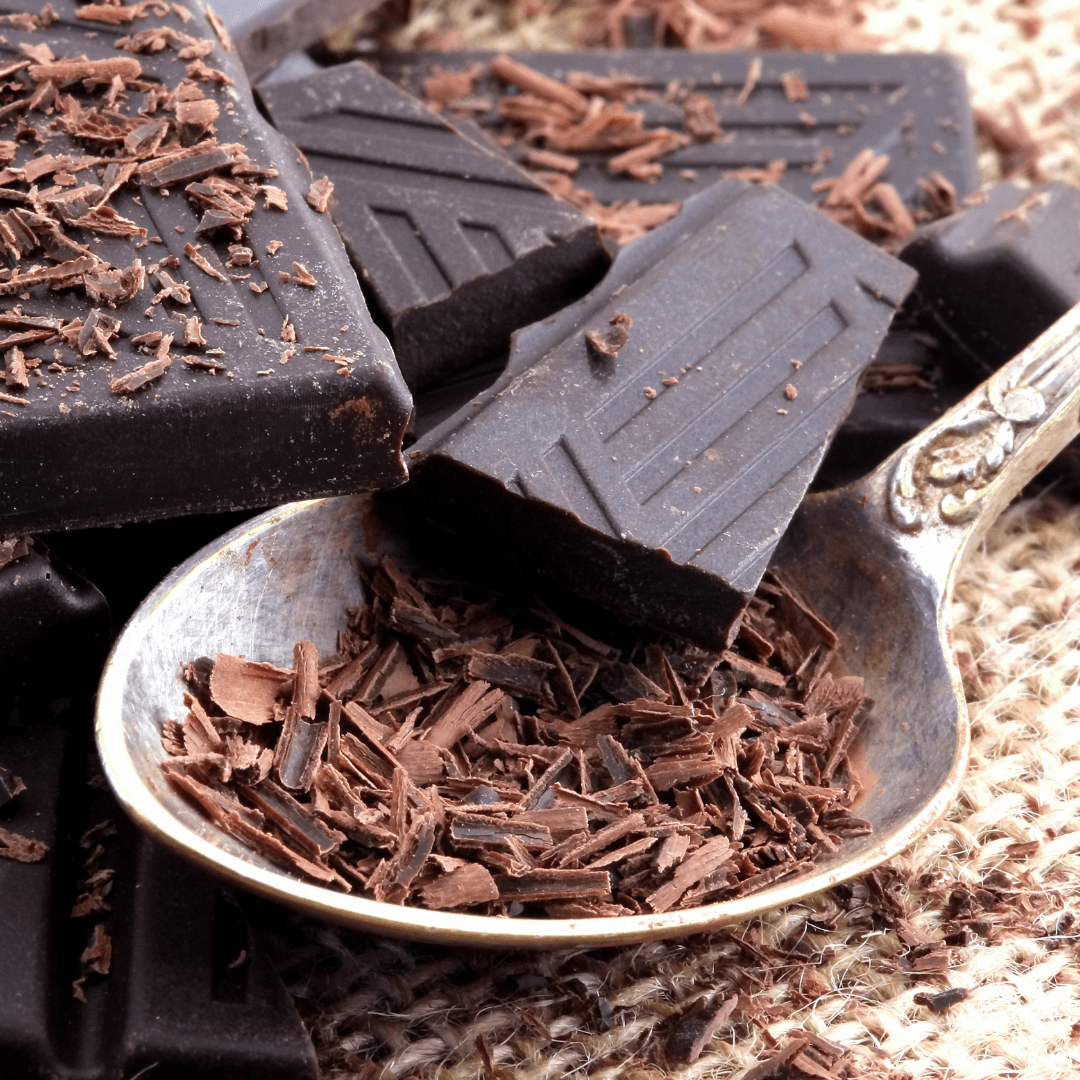
1. Dark Chocolate
Not only is dark chocolate delicious, but it's also a great way to reduce stress. Packed with powerful flavonoids and antioxidants found in cocoa, dark chocolate helps increase blood flow to the brain, enhance cognitive function, and reduce inflammation, contributing to overall brain health.
These flavonoids are believed to play a role in dark chocolate's ability to improve mood and combat the physiological effects of stress.
Consuming moderate amounts of dark chocolate can stimulate the production of endorphins, the body's natural “feel-good” chemicals, and increase serotonin levels.
Moreover, studies have shown that dark chocolate can reduce the levels of stress hormones in the body, including cortisol, thereby mitigating the effects of stress.
For those looking to enjoy the stress-reducing benefits of dark chocolate, choosing options with a high percentage of cocoa (70% or higher) ensures the highest concentration of beneficial flavonoids, making it a delicious and health-conscious choice for easing stress.
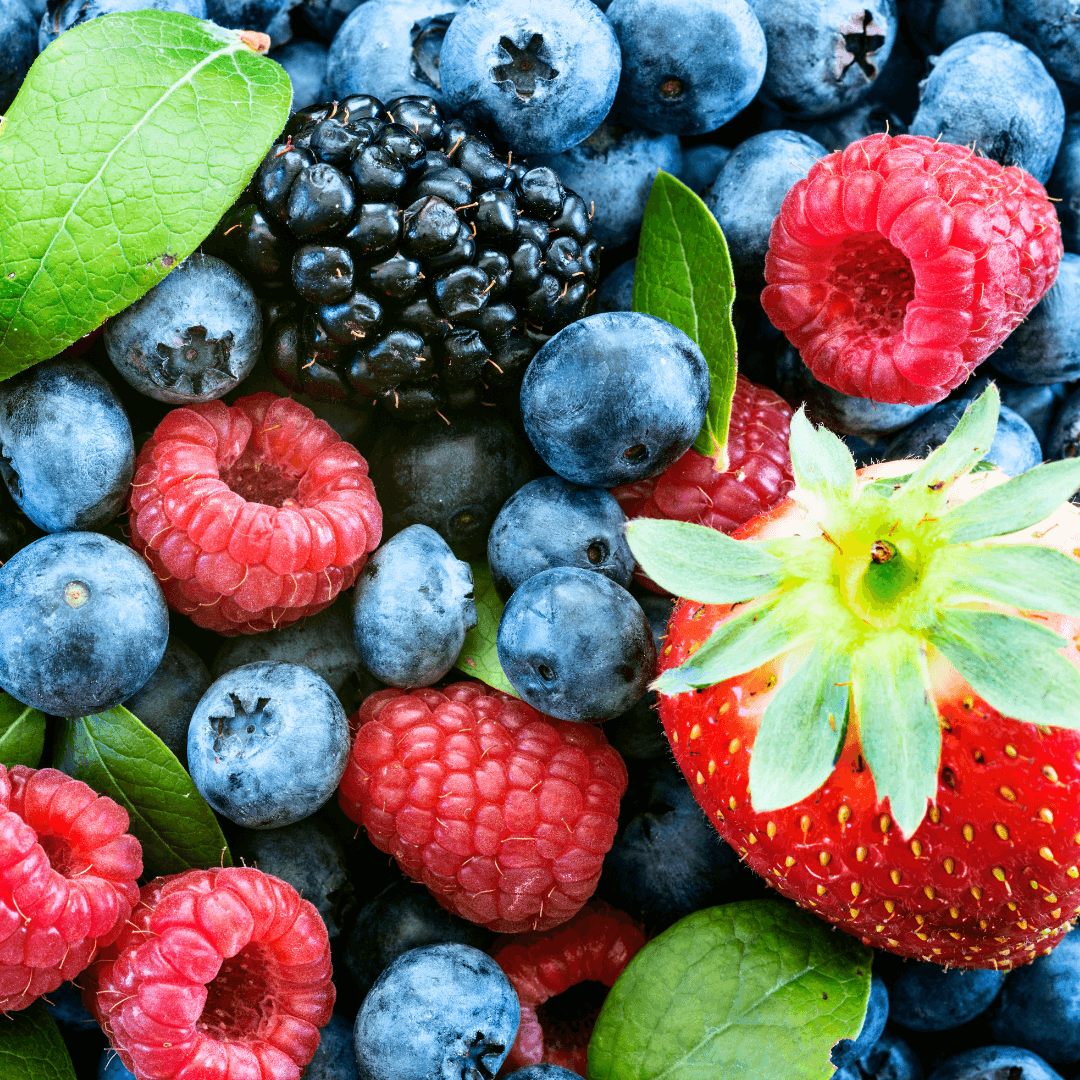
2. Berries
Berries, including blueberries, strawberries, and raspberries, are potent allies in the fight against stress, thanks to their high content of antioxidants.
These small but mighty fruits are packed with vitamins and minerals, particularly vitamin C, effectively reducing stress.
Berries include antioxidants that neutralize free radicals chemicals that can harm cells and cause aging and stress.
By mitigating the oxidative stress on the body, berries enhance the body's resilience to stressors and improve our response to stressful situations.
Moreover, the natural sugars found in berries provide a healthy energy boost, contrasting the crash associated with processed sugary snacks, helping to maintain balanced energy levels throughout the day.
Consuming a variety of berries can also support the immune system, further protecting the body during times of stress.
Incorporating these colourful fruits into your diet, whether fresh, frozen or in smoothies, is a delicious and effective way to combat stress and promote overall health.
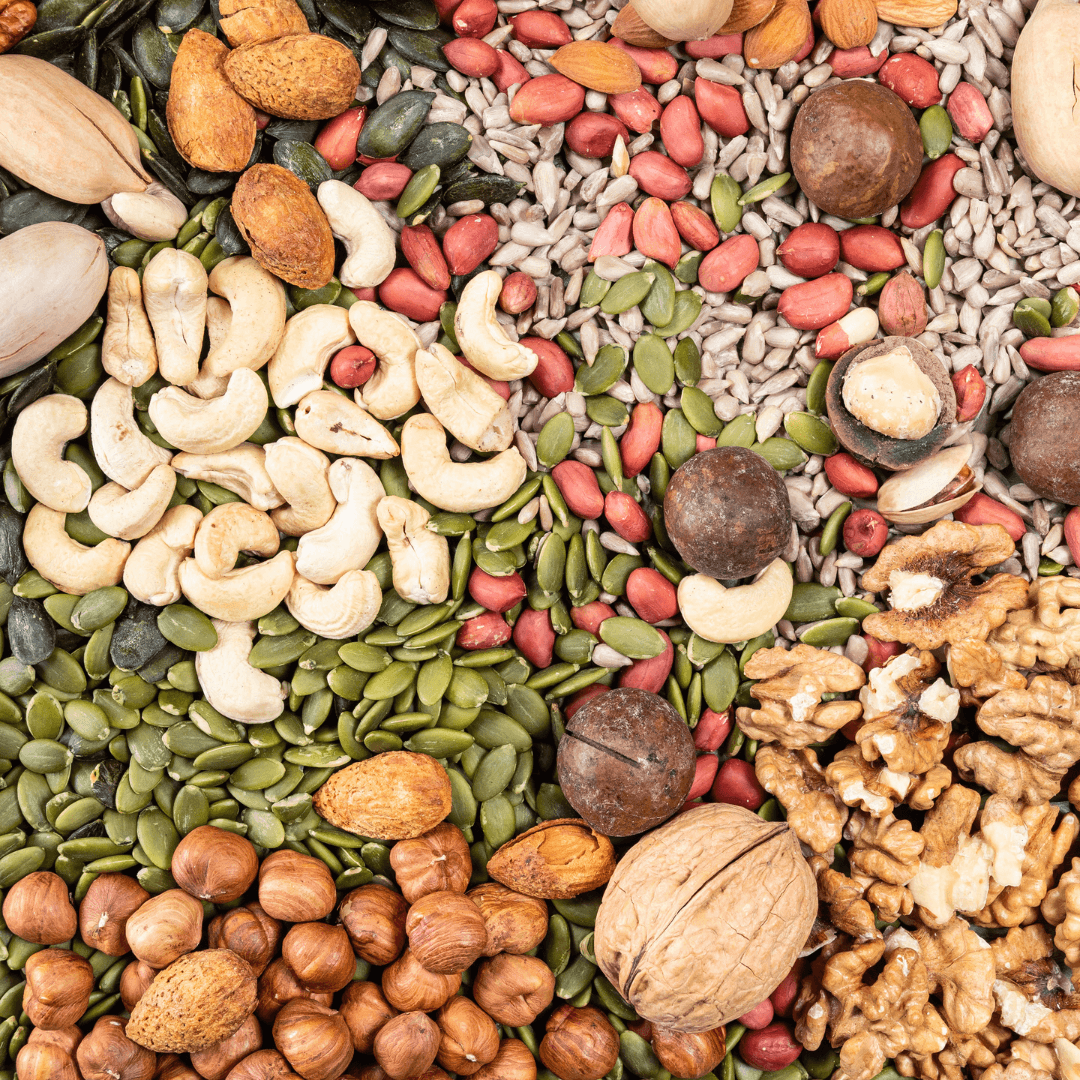
3. Nuts And Seeds
Packed with magnesium and good fats that help balance the body's stress response system, nuts and seeds are among the greatest foods for alleviating stress.
These crunchy snacks are high in magnesium and are essential for controlling the body's stress response mechanism.
Because magnesium lowers cortisol levels, the body's stress hormone, it has a soothing effect on the neurological system, which helps to reduce stress and anxiety.
Beyond magnesium, nuts and seeds are rich in healthy fats, including omega-3 fatty acids that support brain health and mood regulation.
They also provide a good source of fiber, protein, and antioxidants, making them a well-rounded snack that contributes to overall well-being and resilience against stress.
The combination of these nutrients helps stabilize mood and promotes a feeling of satiety, which can prevent stress-induced overeating.
Incorporating a handful of these nuts and seeds into your daily diet can be a simple yet effective way to help manage stress levels and boost your mood.
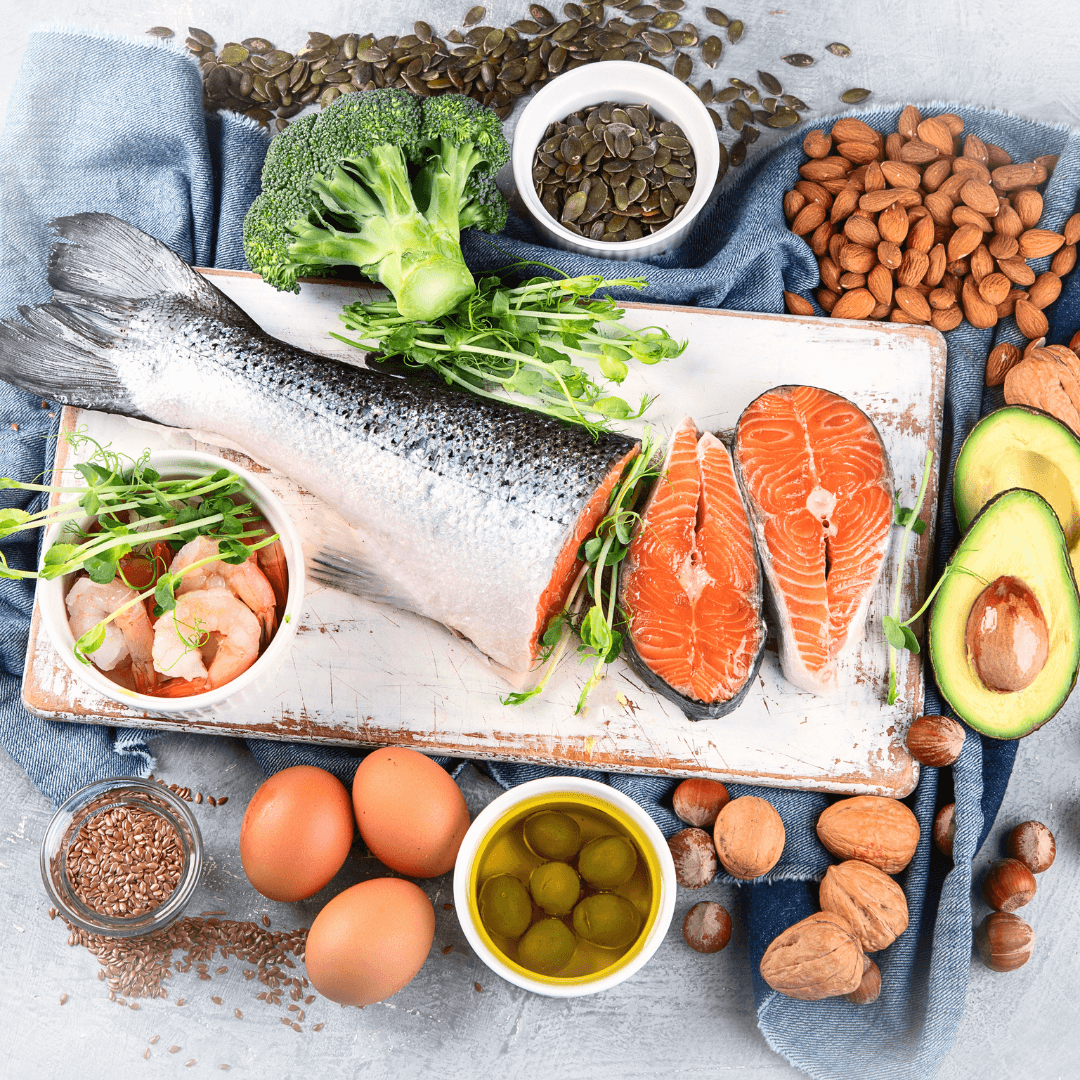
4. Fatty Fish
Omega-3 fatty acids, essential for fighting stress and anxiety, are abundant in fatty fish, such as sardines, mackerel, and salmon.
Particularly, EPA and DHA, omega-3 fatty acids, significantly impact brain health by lowering inflammation and supporting normal brain function.
Studies have demonstrated that by controlling neurotransmitters and lowering the body's stress chemicals, cortisol and adrenaline, these fatty acids can dramatically reduce anxiety levels and elevate mood.
This effect provides a natural way to assist in managing stress responses and mood swings, and it is especially helpful in high-stress settings.
Fatty fish are also a fantastic source of vitamin D, which has been connected to other advantages for mental health, such as improving mood and preventing depression.
Regular fatty fish consumption can thus not only support physical health but also contribute to a more balanced and stress-resilient emotional state, making it a crucial component of a stress-relieving diet.
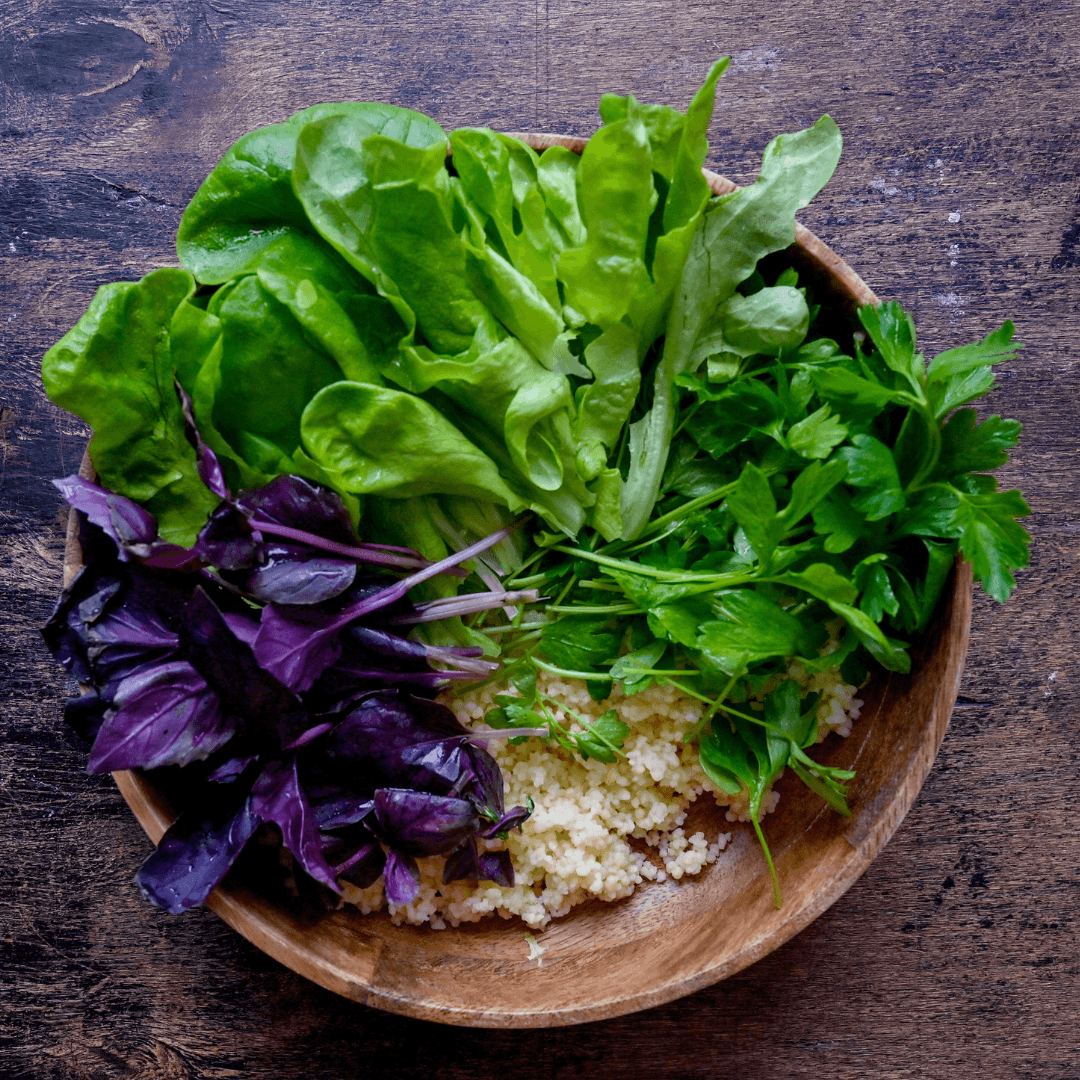
5. Green Leafy Vegetables
Green leafy vegetables, including spinach, kale, and Swiss chard, are among the best stress-relieving foods.
Their high magnesium content helps regulate cortisol levels and promotes a sense of calmness and well-being.
These vegetables are rich in magnesium, a mineral crucial in regulating cortisol levels, the body's primary stress hormone.
Magnesium helps to relax muscles and nerves, promoting a sense of calmness and well-being.
These vegetables are packed with other essential nutrients, including vitamins A, C, and K, as well as antioxidants and fiber, which support overall health and immune function.
The high fiber content also helps maintain stable blood sugar levels, preventing energy crashes that can exacerbate stress and fatigue.
Incorporating these green leafy vegetables into your diet can effectively reduce stress levels and improve overall health, making them a valuable addition to any stress-relief diet.

6. Oatmeal
Oatmeal is not just a comforting breakfast staple; it's also a powerful stress reliever. Because of its high complex carbohydrate content, it elevates serotonin levels, which are connected to emotions of calmness and well-being.
Oatmeal also contains a lot of fiber, which guarantees a gradual release of energy and helps to keep blood sugar levels stable and mood swings at bay. Oats are also a fantastic magnesium source, essential for calming down and relaxing muscles.
Furthermore, oats are an excellent source of magnesium, which is crucial for muscle relaxation and easing stress.
Enhancing your oatmeal with bananas adds potassium, which supports healthy blood pressure, while walnuts provide omega-3 fatty acids that help reduce stress hormones like cortisol.
Whether you enjoy your oats in porridge, as overnight oats, or baked into treats, incorporating this versatile grain into your diet can help you easily navigate a less stressful day.
Adding toppings like fruits, nuts, or seeds can enhance nutritional value and provide additional stress-relieving benefits.
Starting your day with a bowl of oatmeal can set a positive tone for the day ahead, helping you feel more balanced and resilient in the face of stressors.
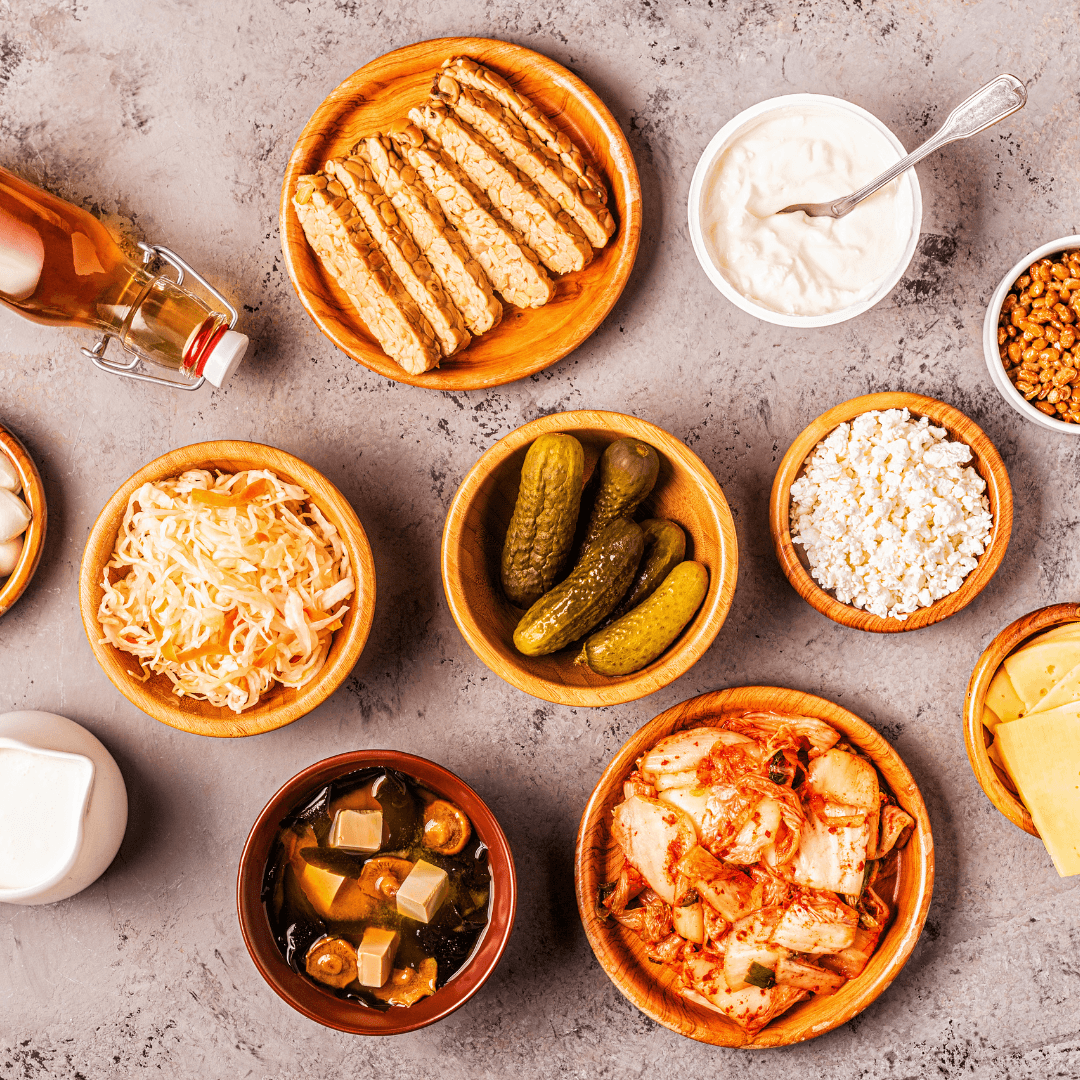
7. Yogurt And Fermented Foods
Yogurt and fermented foods are among the best stress-relieving foods, rich in probiotics that support a healthy gut microbiome, essential for immune function, digestion, and mood regulation.
These foods support the growth of good bacteria in the digestive system, essential for maintaining a balanced gut environment.
The gut microbiota is necessary for general health since it is involved in immunological response, digestion, and mood control.
Research shows that the gut-brain axis, the communication network between the gut and the brain, significantly influences mental health and stress response.
Yogurt and fermented foods include probiotics, which can improve gut health and have a favourable impact on stress levels and mood.
By including these foods high in probiotics in your diet, you may be able to maintain a healthy gut flora and maybe lessen your symptoms of anxiety and stress.
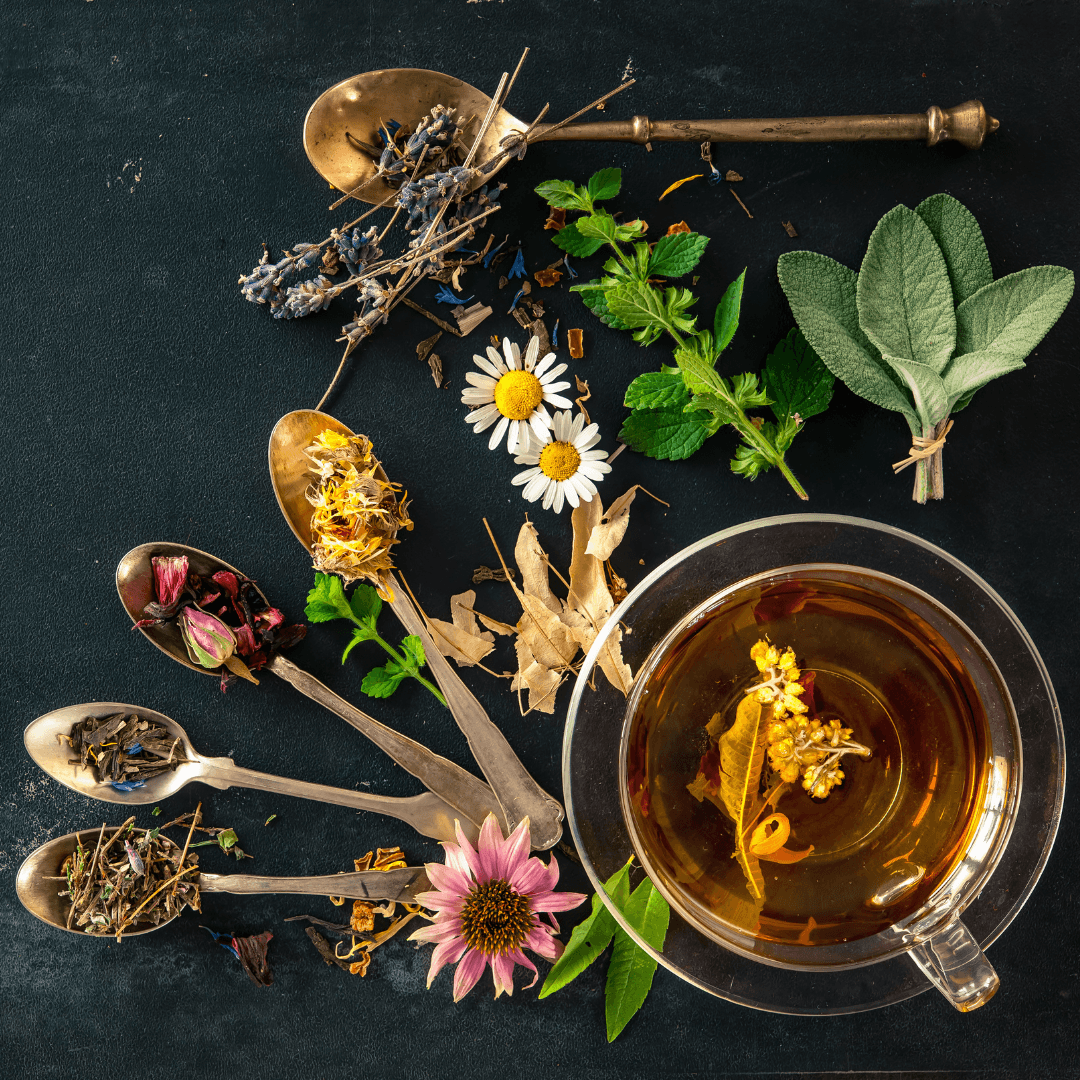
8. Tea
Green tea is well-known for its health benefits and contains an amino acid called theanine, which is recognized for its calming effects on the mind and body.
Theanine enhances the production of alpha waves in the brain, promoting relaxation and decreasing feelings of stress and anxiety.
Furthermore, theanine possesses a unique ability to cross the blood-brain barrier, directly influencing brain function.
The caffeine content in green tea balances the calming properties of theanine, although the amount is lower than that of coffee.
This offers a slight energy boost without the jittery negative effects that caffeine usage is sometimes linked to.
Additionally, green tea is abundant in catechins and antioxidants, which have various advantageous health effects, including lowering the risk of chronic diseases and improving general wellness.
Incorporating green tea into your daily routine can enhance your overall health and handle stress in a relaxing and advantageous way.
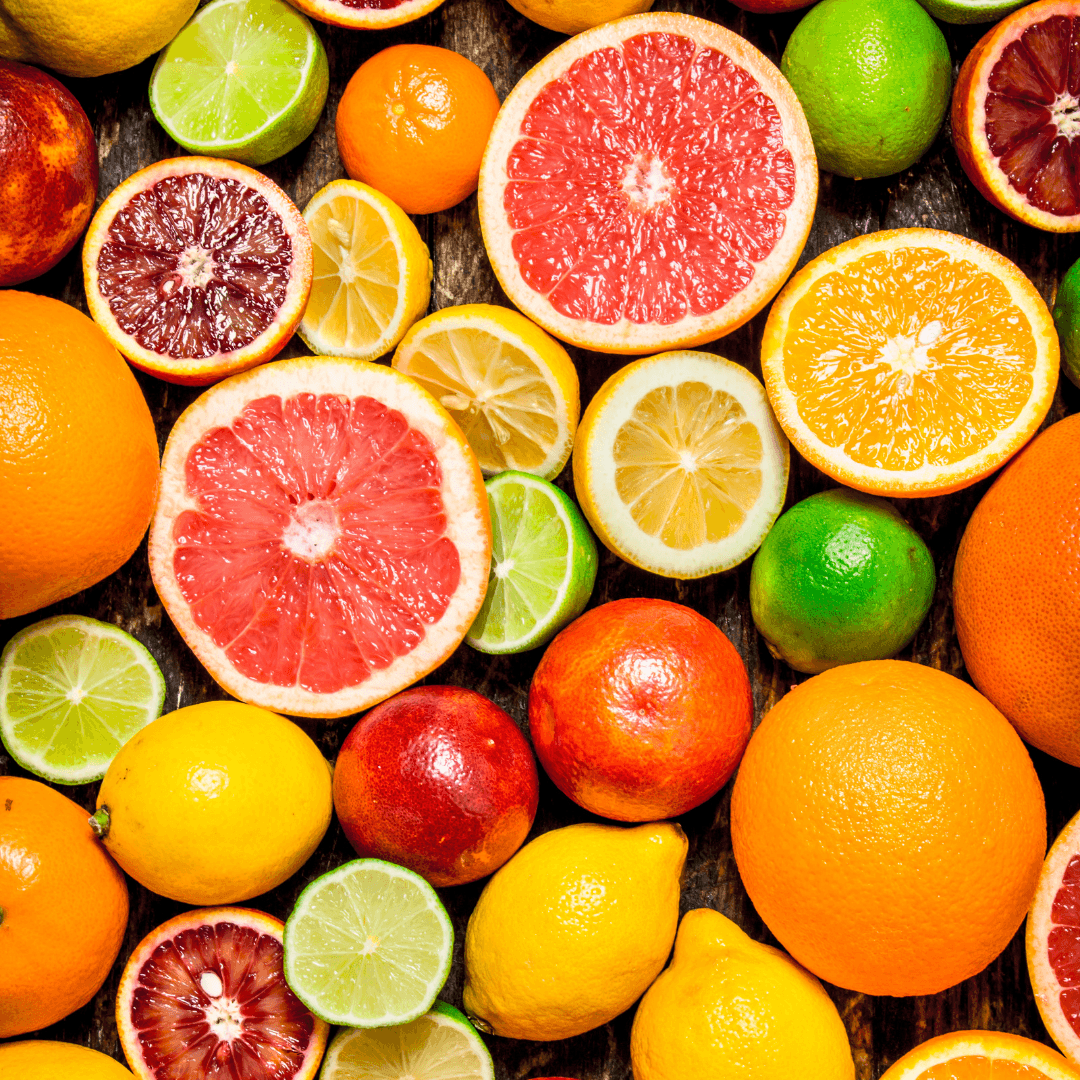
9. Citrus Fruits
Citrus fruits such as oranges, lemons, and grapefruits are renowned for their stress-relieving properties, primarily due to their high vitamin C content.
Vitamin C is vital in reducing cortisol levels, the hormone released during stress, helping alleviate anxiety and tension.
Moreover, vitamin C is crucial for collagen production, a protein that supports skin, muscles, and bones and aids in iron absorption from plant-based foods.
Consuming citrus fruits regularly can strengthen the immune system, lower the risk of chronic diseases, and enhance the body's ability to recover from stressful situations.
Whether consumed whole, juiced, or incorporated into various dishes, citrus fruits offer a delightful and effective way to promote the body's stress response and overall health.
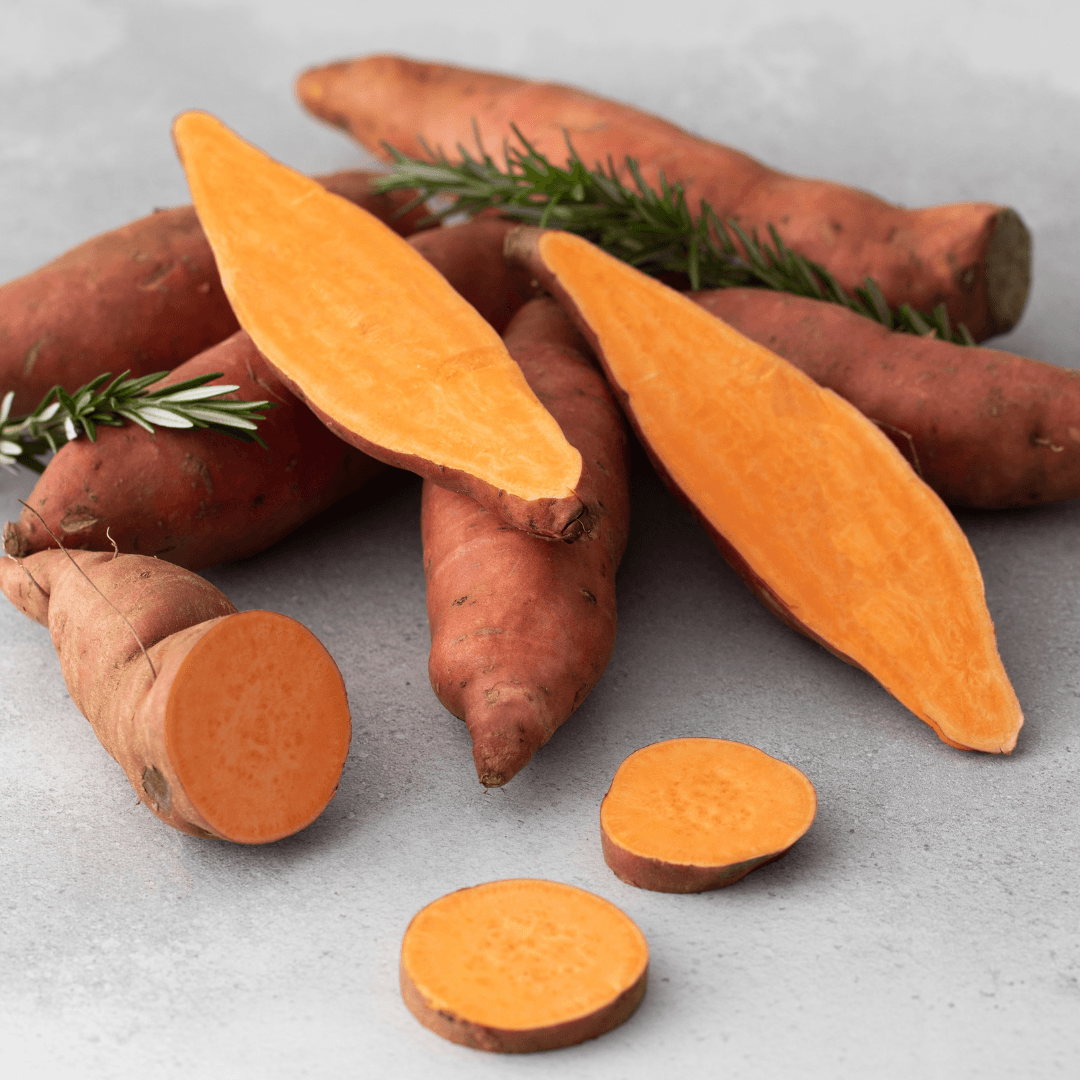
10. Sweet Potatoes
Sweet potatoes are an excellent addition to a diet that relieves stress since they are a tasty and adaptable food.
Sweet potatoes, which are high in complex carbs, can lower the production of the stress hormone cortisol and help control blood sugar levels.
Sweet potatoes contain carbohydrates that break down gradually, giving you a consistent energy source and avoiding blood sugar spikes and crashes, which can exacerbate stress and mood swings.
In addition, sweet potatoes contain abundant beta-carotene, a vitamin A precursor noted for its antioxidant qualities.
Antioxidants shield the body from oxidative stress and inflammation, which are connected to many chronic illnesses and ailments.
Sweet potatoes are an excellent addition to your diet since they can help you reduce stress and offer other health advantages.
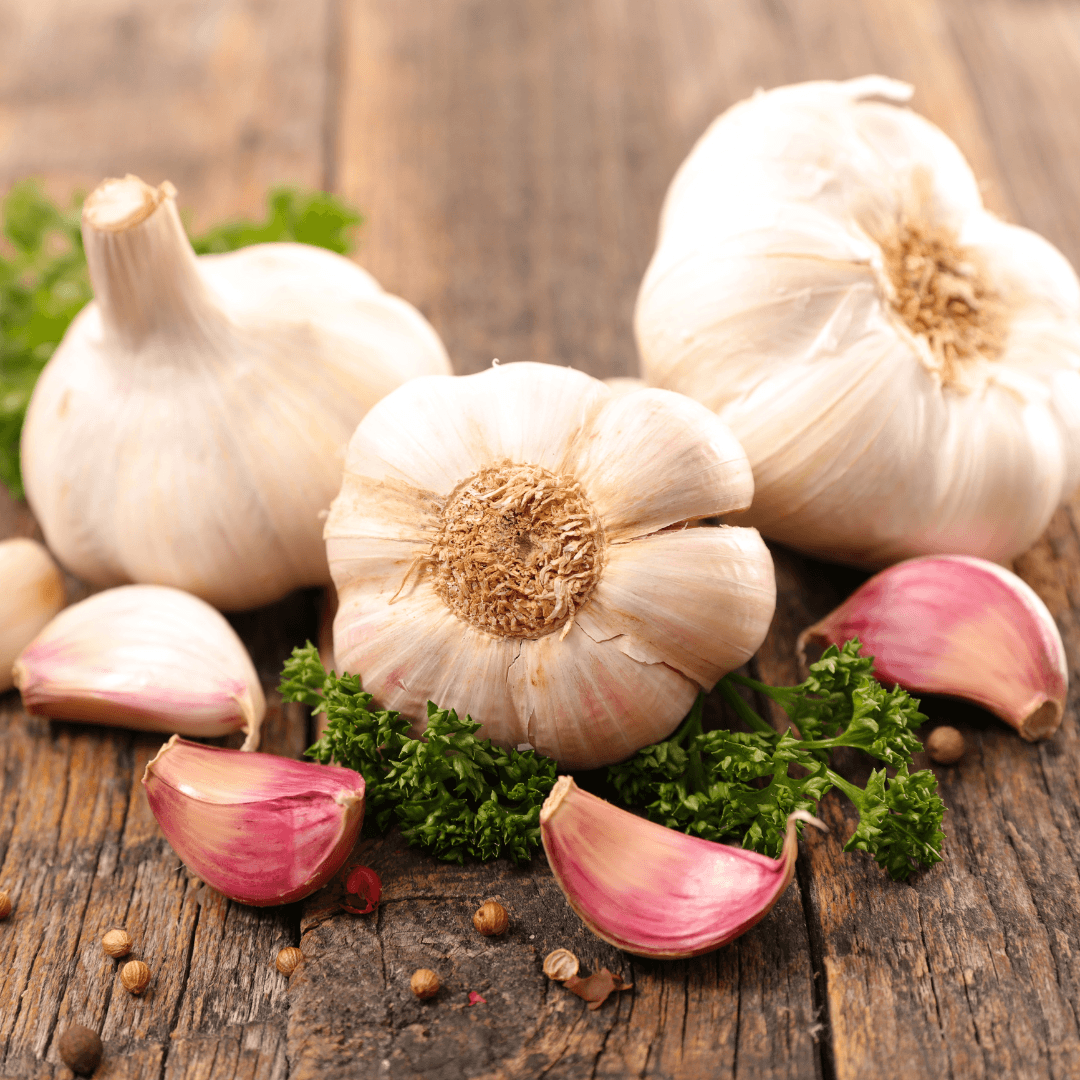
11. Garlic
A common ingredient in many cooking recipes, garlic has many health advantages beyond mere flavour, such as lowering stress.
Garlic's high level of sulphur compounds, such as allicin, makes it well known for its immune-boosting qualities.
These compounds not only enhance the immune system's response but also play a role in reducing stress levels.
Garlic contains sulphur-containing amino acids, such as cysteine, necessary to produce glutathione, a powerful antioxidant in the body.
Glutathione helps combat oxidative stress, a key factor in the development of stress-related disorders and chronic diseases.
By increasing glutathione levels, garlic helps protect cells from damage caused by stress and promotes overall well-being.
Incorporating garlic into your diet can be a flavourful way to support your body's stress response and enhance your overall health.
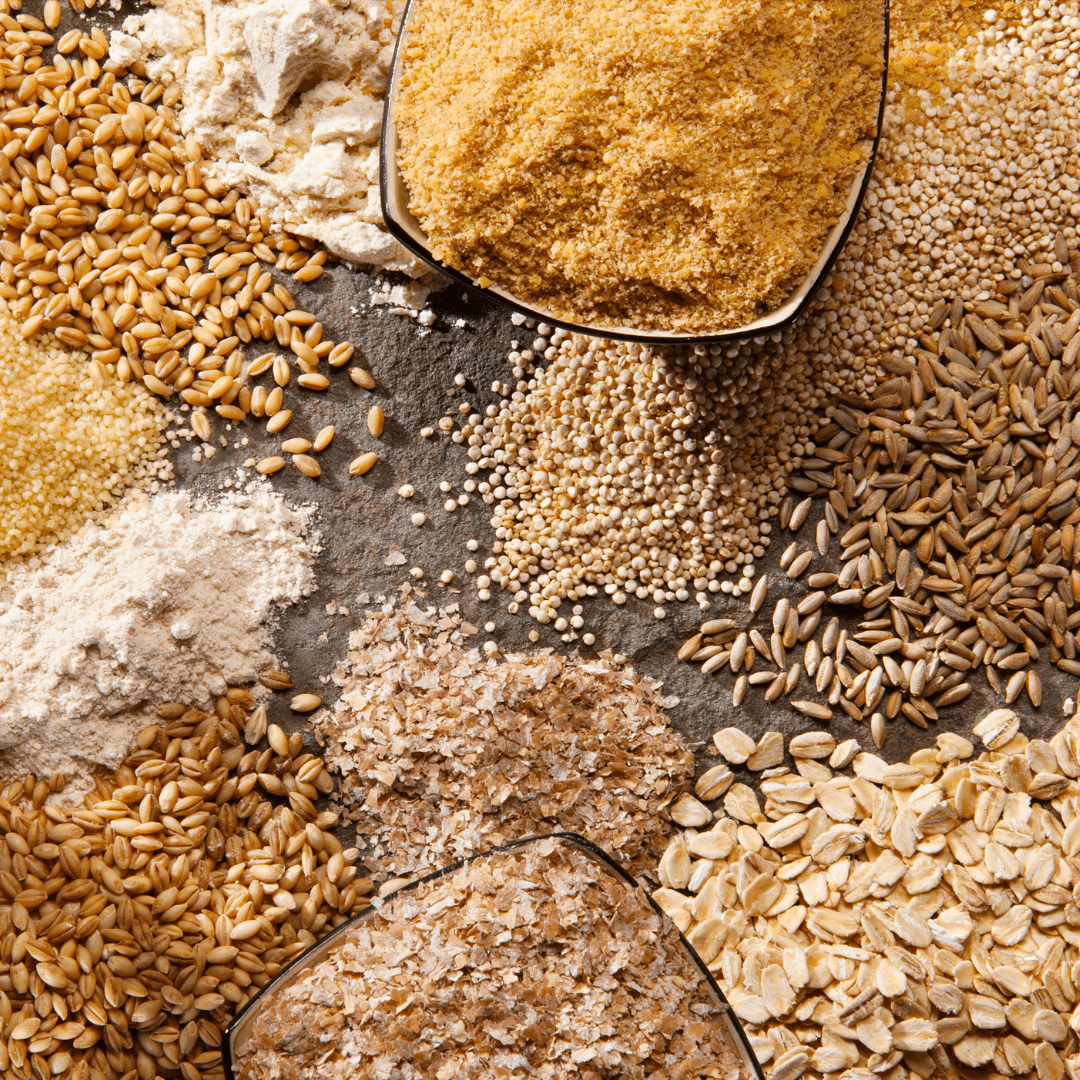
12. Whole Grains
Whole grains, including quinoa, brown rice, and barley, offer more than just a source of complex carbohydrates; they also promote mental well-being and reduce stress.
Tryptophan is an amino acid abundant in these grains. It is a precursor to serotonin, a neurotransmitter that controls mood, appetite, and sleep.
Eating whole grains can increase serotonin production, improving overall well-being and lessening tension and worried sensations.
Additionally, whole grains are packed with fiber, vitamins, and minerals, which support overall health and provide sustained energy levels.
The slow digestion of whole grains also helps stabilize blood sugar levels, preventing the mood swings and energy crashes associated with refined carbohydrates.
Incorporating a variety of whole grains into your diet can effectively support your mental health and reduce stress levels.
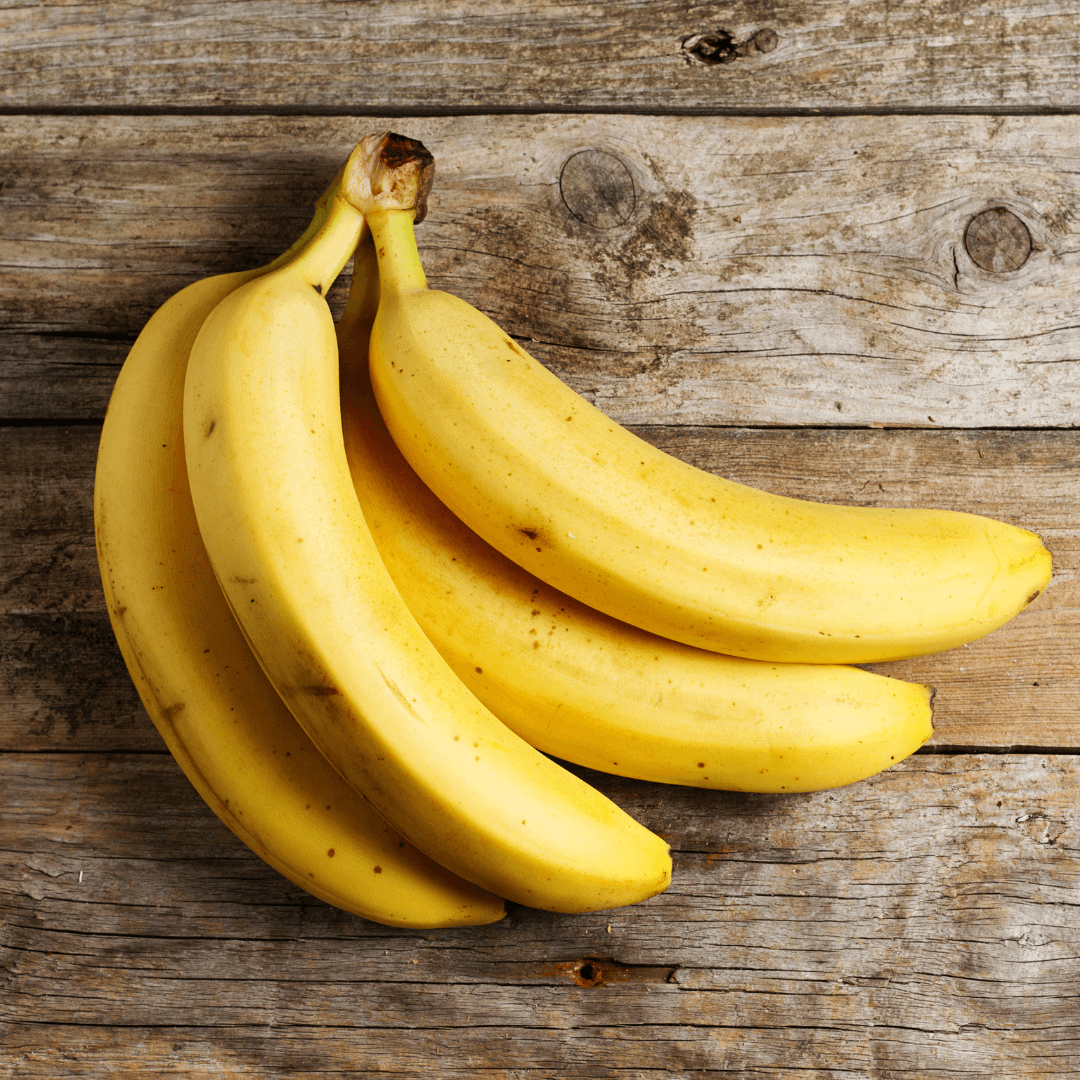
13. Bananas
A handy and filling fruit, bananas provide many health advantages for general well-being and stress reduction.
Bananas are an important source of potassium, which helps to control blood pressure and lower the risk of hypertension, which can be made worse by stress.
Potassium also promotes a healthy circulatory system and a lower risk of heart disease, and it helps balance the effects of sodium in the body.
Moreover, tryptophan, an amino acid that precedes serotonin, a neurotransmitter important in mood regulation, is found in bananas.
Consuming bananas increases the production of serotonin in the body, which might contribute to feelings of well-being and relaxation.
In addition, vitamin B6—needed to synthesize neurotransmitters like serotonin—is abundant in bananas. Incorporating bananas into your diet can be easy and successful.
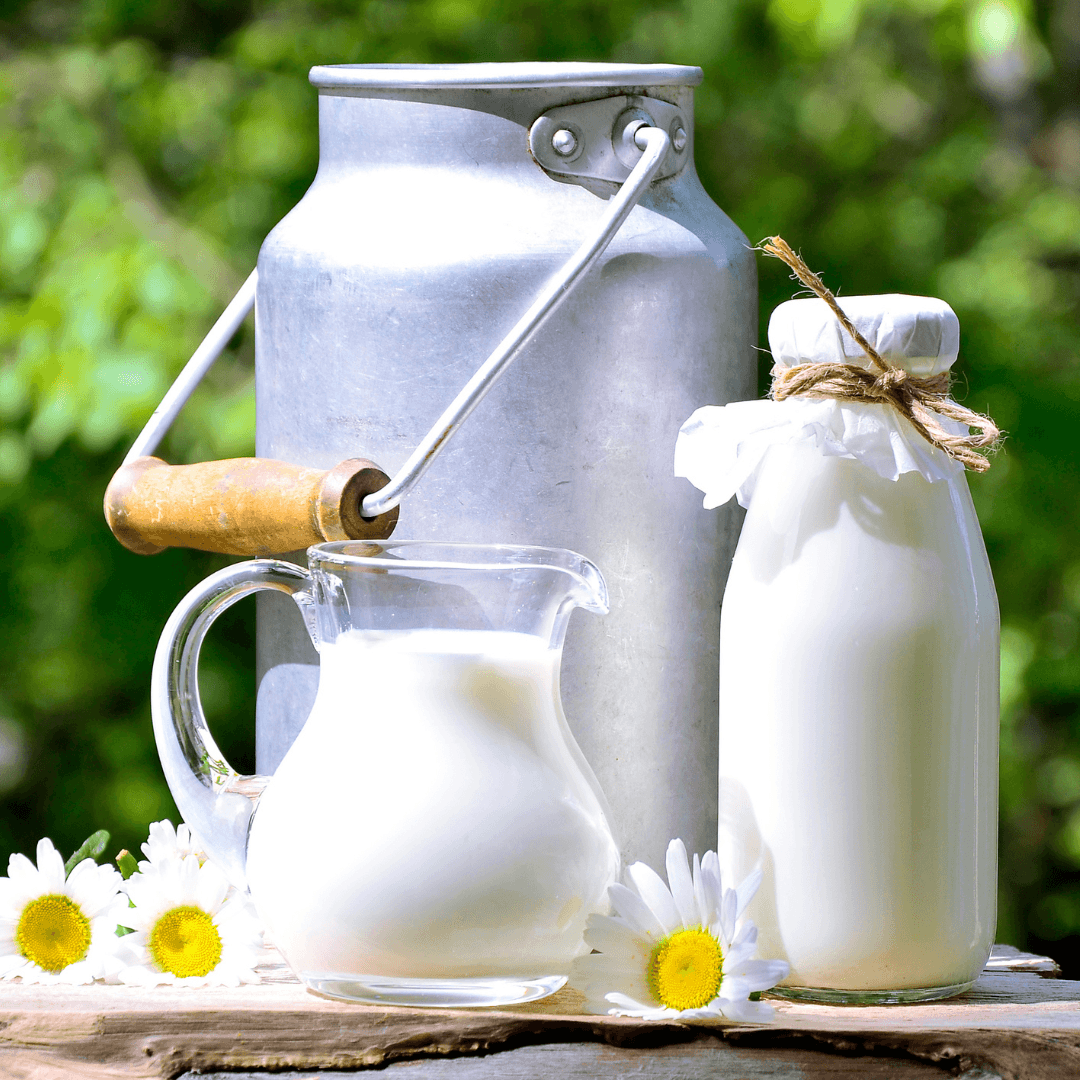
14. Milk
Milk has long been known for its soothing properties, particularly before bedtime. Beyond its reputation as a folk remedy for insomnia, milk offers a range of nutrients that can help promote relaxation and reduce stress.
Antioxidants, like vitamins B2 and B12, which are abundant in milk, help shield cells from oxidative stress and maintain neuronal function.
Further to being a rich source of protein, milk also contains the amino acid bacterium, which has been shown to have a calming impact by lowering blood pressure and levels of the stress hormone cortisol.
Milk's potassium concentration can also aid in easing tense muscles and spasms brought on by stress.
A warm glass of milk before bed is a great addition to your stress-relief routine. It can be a soothing and efficient way to relax and prepare for a good night's sleep.
Conclusion
Adding these stress-relieving foods to your diet can allow you to savour various delectable flavours and give your body the nutrition it needs to manage stress more skillfully.
While nutrition is vital for stress management, maintaining a healthy lifestyle with regular exercise, enough sleep, and mindfulness exercises is equally critical.
In conclusion, the best stress-relieving foods are those rich in antioxidants, vitamins, and minerals, as well as omega-3 fatty acids and magnesium, which can support your body's natural stress response and enhance resilience to stressors.
Focusing on nutrient-dense foods rich in antioxidants, vitamins, and minerals can support your body's natural stress response and improve your resilience to stressors.
Similarly, incorporating foods rich in omega-3 fatty acids, such as fatty fish, and those high in magnesium, like sweet potatoes and spinach, can help regulate stress hormones and promote relaxation.
While these foods can help relieve stress, it's important to remember that a balanced diet, regular physical activity, and healthy lifestyle habits are key components of a comprehensive approach to stress management.
By nourishing your body with these stress-relieving foods and adopting a holistic approach to wellness, you can better cope with stress and enjoy improved overall health and vitality.
I trust you enjoyed this article about the Best Stress-Relieving Foods. Please stay tuned for more blog posts to come shortly.
JeannetteZ
>>>Please click here to read my all-inclusive article about Lessons That Will Teach You All About Stress<<<
>>>Are you interested in Natural Healing And Stress Relief through Herbs? Please click here for my #1 Recommendation<<<
Your Opinion Is Important To Me
Do you have thoughts, ideas, or questions? I would love to hear from you. Please leave me your questions, experiences, and remarks about the Best Stress-Relieving Foods in the comments section below. You can also reach me by email at Jeannette@Close-To-Nature.org.
>>>Please click here to read more about Healthy Eating on my Vegan Website<<<
Disclosure
This post may contain affiliate links. I earn from qualifying purchases as an Amazon Associate and other affiliate programs. Please read my full affiliate disclosure.
You might also enjoy these blog posts:
Learning A Language And Stress Management
9 Best Stress Relief Techniques
How Does Nature Impact Our Wellbeing
9 Best Ways To Relieve Stress With Nature
8 Best Tips To Reduce Stress Naturally

